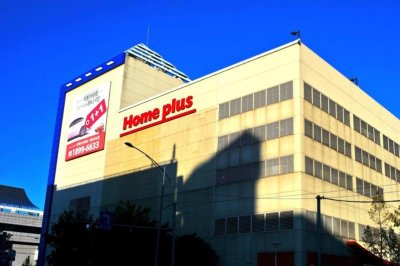MBK Partners urged to repay debts owed to individual investors

A criminal complaint filed with South Korean prosecutors alleged that MBK Partners issued or helped issue commercial papers and asset-backed, short-term bonds knowing that Home Plus lacked the capacity to repay them, causing investors to lose about $400 million. File Photo by Jeon Heon-Kyun/EPA
SEOUL, July 9 (UPI) — A lawyer whose firm is suing MBK Partners over investor losses has urged the financial company to repay debts owed to those who purchased asset-backed bonds related to Home Plus, South Korea’s troubled discount chain.
LawVax attorney Jang Jin-seok stated that position during an interview with UPI on Tuesday. The Seoul-based law firm filed a criminal complaint with the prosecutors late last month against senior executives of MBK and Home Plus.
Included in them were MBK Chairman Michael Byungju Kim and Home Plus co-CEOs Kim Kwang-il and Joh Joo-yun.
The complaint alleges that they issued or helped issue commercial papers and asset-backed, short-term bonds knowing that Home Plus lacked the capacity to repay them, causing investors to lose about $400 million.
“Due to mounting losses and deteriorating credit ratings, Home Plus relied on short-term funding to stay afloat, and toward that end, it devised unique asset-based bonds, which attracted individual investors,” Jang said.
“And all of a sudden, Home Plus filed for corporate rehabilitation in early March, just after its credit ratings downgrade. This indicates that the retail chain had no intention of repaying its debts. At the very least, MBK and Home Plus must address this issue,” he said.
Home Plus refuted Jang’s claims.
“Home Plus made every effort to turn the business around to the last minute, as shown by its attempts to reduce debt ratios,” a company spokesperson said in a phone interview.
“However, these efforts were not fully effective, as the virus pandemic and the rise of e-commerce continued to negatively impact our business,” he said.
Home Plus noted that its debt ratio improved to 462% as of this January, compared to 1,506% in the same period of 2024.
MBK acquired Home Plus from Tesco in 2015 for $5.1 billion. However, the company has been in steady decline, particularly since 2021, posting consecutive annual losses.
Its operations suffered due to the COVID-19 pandemic and the rapid rise of online retailers like Coupang, which eroded its traditional brick-and-mortar business model.
On Feb. 28, South Korea’s credit rating agencies downgraded Home Plus’s corporate rating from A3 to A3-. Four days later, it filed for corporate rehabilitation with the Seoul Bankruptcy Court.
“It seems that MBK gave up Home Plus last year and dispatched Kim Kwang-il to the company to oversee its exit strategy,” Jang said.
“And the credit ratings cut may have convinced MBK and Home Plus that short-term funding was no longer viable, so they chose to walk away without caring about the debts owed to individual investors.”
Kim Kwang-il was appointed co-CEO of Home Plus early last year to lead the corporation with Joh Joo-yun, former chief of McDonald’s Korea.
Jang criticized Kim for taking on too many roles, noting that he reportedly serves multiple positions for 18 companies, mostly MBK affiliates like Home Plus and Lotte Card.
In regard to a potential sale of Home Plus, Jang also was skeptical. MBK is seeking to avoid liquidation by selling the retailer. To do so, the outfit pledged to write off its entire stake in Home Plus worth $1.8 billion.
“MBK now claims that Home Plus is an attractive opportunity after cancelling $1.8 billion stake,” Jang said. “If that is true, why doesn’t MBK take over operations of Home Plus again? In case MBK can revive the supermarket chain, it does not have to give up its stake on Home Plus.”
In response, Home Plus said that the attempt to sell the company is aimed at saving nearly 20,000 employees, along with numerous suppliers and stakeholders. It added that MBK has made significant sacrifices to support this.


